Description
What are Aspirin Dispersible Tablets?
These tablets are a form of treatment that treats blood clots which can cause a stroke or a heart attack. The active ingredient in these tablets is aspirin which is a painkiller which is found in a number of treatments of pain. Aspirin is also found in tablets that are used after a heart attack or stroke to reduce blood clots by widening the blood vessels. These tablets should not be used as a painkiller, instead consult a doctor or our pharmacist before using any treatment.
How does aspirin work?
Aspirin is in a class of drugs known as NSAIDS (Non-Steroidal Anti-Inflammatory Drugs). NSAIDS work by blocking chemicals known as prostaglandins which causes the skin tissue to swell and trigger pain signals. NSAIDS work to reduce pain and reduce swelling because it is an analgesic. Aspirin is also a drug that can reduce a fever and fight inflammation. As well as working as a painkiller, aspirin can also reduce the risk of a heart attack and a stroke. This is thanks to prevents platelets in the blood from clotting in the arteries, improving blood flow, making aspirin the only painkiller that can save lives.
Who are these aspirin tablets suitable for?
These tablets are suitable to be used by adults and children aged 16 and over. They should not be used by anyone who is allergic to the ingredients contained in the tablets. They should also not be used if any of the following applies:
- Are allergic to any other NSAIDS
- Have had an asthma attack
- Have or have had a stomach ulcer or in the small intestine
- Ever had the problem of the blood not clotting properly
- Had severe kidney or liver problems
- Suffer from gout
If you are taking any treatment for any other condition, you should speak to a doctor or our pharmacist before using.
Uses / Instructions
Adults: The usual dose for long-term use is 1-2 tablets (75-150mg) once daily. In some circumstances a higher dose may be appropriate, especially in the short-term, and up to 4 tablets (300mg) a day may be used on the advice of a doctor.
These tablets can we swallowed alone or dissolved or mixed with water before taking with or after food. Swallow the tablets as a whole or immediately after dispersing them in water. If symptoms persist you should consult your doctor.
See patient information leaflet for full details on dosage instructions.
Warnings
Consult with your doctor before beginning this medication as treatment for blood thinning. Dispersible Aspirin Tablets 75mg are not to be used as pain relief.
- There is a possible association between aspirin and Reye’s syndrome when given to children. Reye’s syndrome is a very rare disease, which affects the brain and liver, and can be fatal. For this reason aspirin should not be given to children aged under 16 years unless specifically indicated (e.g. for Kawasaki’s disease).
- Salicylates may enhance the effect of oral hypoglycaemic agents, phenytoin and sodium valproate. They inhibit the uricosuric effect of probenecid and may increase the toxicity of sulphonamides.
- Aspirin may potentiate the effect of heparin and increases the risk of bleeding with oral anticoagulants, antiplatelet agents and fibrinolytics.
- Plasma salicylate concentrations may be reduced by concurrent use of corticosteroids, and salicylate toxicity may occur following withdrawal of the corticosteroids. The risk of gastrointestinal ulceration and bleeding may be increased when aspirin and corticosteroids are co-administered.
- Concurrent use of aspirin and other NSAIDs should be avoided. Use of two or more NSAID preparations increases the risk of serious gastrointestinal haemorrhage. Concurrent administration of carbonic anhydrase inhibitors such as acetazolamide and salicylates may result in severe acidosis and increased central nervous system toxicity. In large doses, salicylates may also decrease insulin requirements. Patients using enteric coated aspirin should be advised against ingesting antacids simultaneously to avoid premature drug release.
- Before commencing long-term aspirin therapy for the management of cerebrovascular or cardiovascular disease patients should consult their doctor who can advise on the relative benefits versus the risks for the individual patient.
- Aspirin decreases platelet adhesiveness and increases bleeding time. Haematological and haemorrhagic effects can occur, and may be severe. Patients should report any unusual bleeding symptoms to their physician.
- Salicylates should be used with caution in patients with a history of peptic ulceration or coagulation abnormalities. They may also induce gastro-intestinal haemorrhage, occasionally major.
- They may also precipitate bronchospasm or induce attacks of asthma in susceptible subjects.
- Aspirin should be used with caution in patients with impaired renal function (avoid if severe), or in patients who are dehydrated.
- Patients with hypertension should be carefully monitored.
- Do not take if allergic to aspirin or ibuprofen.
- Do not take if you suffer from asthma, have a stomach ulcer, a history of stomach ulcers or indigestion, or are taking blood thinning drugs.
- Do not take if you are breast feeding. If you are pregnant, please talk to your doctor first.
- Do not give to children under the age of 16 years.
See patient information leaflet for full details.
Side Effects
Like with many types of medication, there is a chance of side effects. Potential side effects of using these tablets include:
- Indigestion
- Swelling
- Reddening of the skin
- Unusual bleeding
- A runny nose
- Nausea
- Vomiting
- Cramps
- A headache
See patient information leaflet for full details.
Ingredients
Each Aspirin Dispersible Tablet 75mg contains 75mg aspirin. For a full list of ingredients check the patient information leaflet of the pack you receive as different brands use different other ingredients.

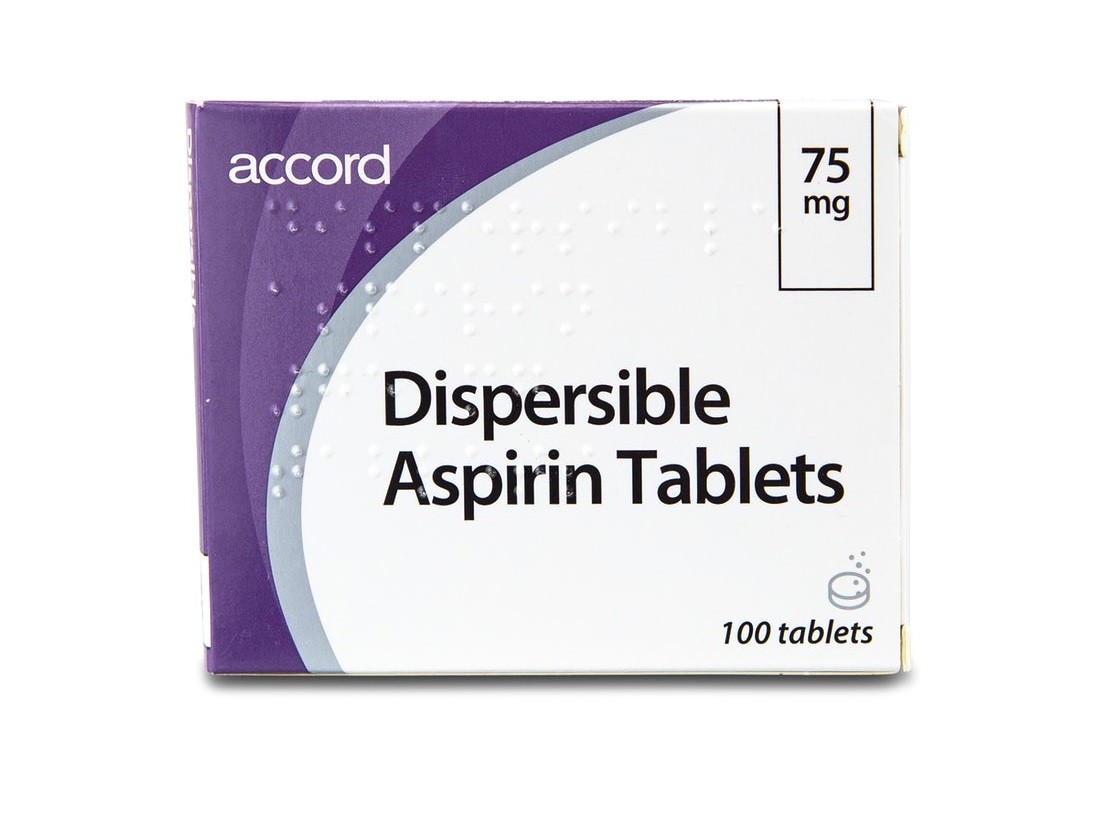

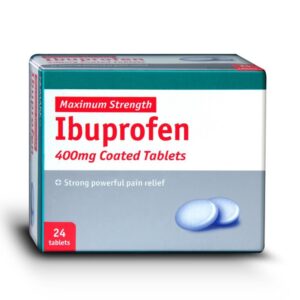

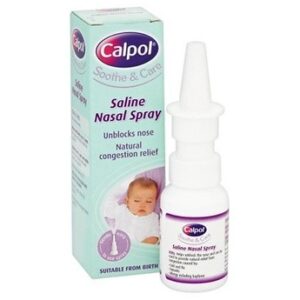
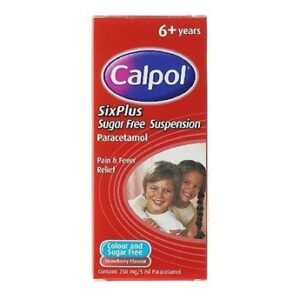


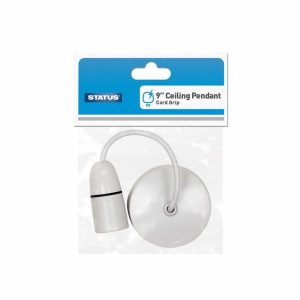
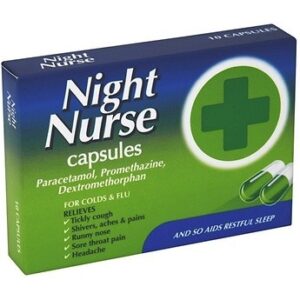
Reviews
There are no reviews yet.